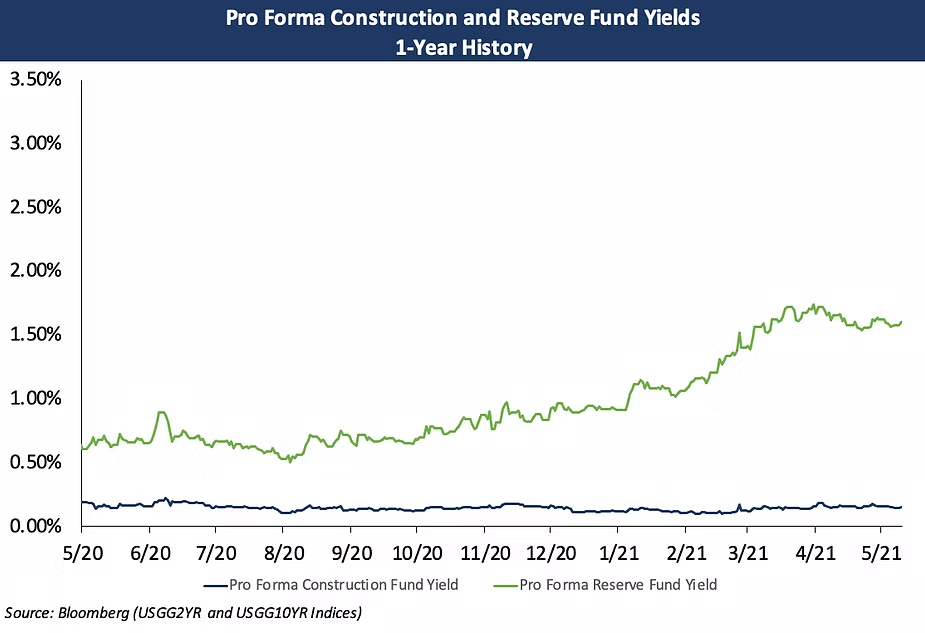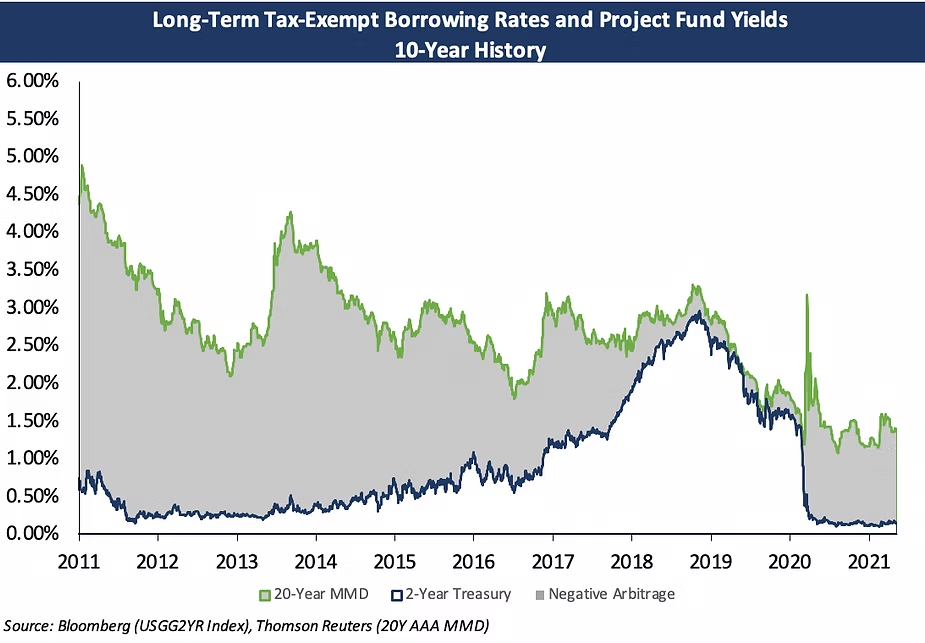As we’ve written previously, the debt ceiling for the United States is currently suspended until July 31, 2021, and at that time, it will be set to the amount of debt on that day. Once that new limit is set, by design, the Treasury department will be legally prohibited from incurring additional debt beyond this limit. Unless Congress acts prior to that date, the reimposition of the debt ceiling will represent the 15th time since 1995 that the SLGS window has been forced to close.
By way of background, when Treasury is legally unable to incur additional debt, it uses so-called “extraordinary measures” to create room for debt under the debt ceiling. Included in these measures is suspending the sale of State and Local Government Securities (SLGS). Today SLGS are being purchased by issuers for taxable advance refundings of tax-exempt bonds and, prior to the passage of tax reform legislation taking effect in 2018, they were also used for tax-exempt advance refundings.
These extraordinary measures typically give the Treasury department some time and room to operate. According to the Wall Street Journal, on Wednesday of last week, Brian Smith, Treasury’s deputy assistant secretary for federal finance said, “Treasury is evaluating a range of potential scenarios, including some in which extraordinary measures could be exhausted much more quickly than in prior debt-limit episodes,” and is asking Congress to move quickly to increase the federal debt limit this summer. Whether Congress acts to raise or re-suspend the debt ceiling, and when they might do so, is unknown at this point in time. For borrowers and issuers of refunding bond transactions, this should not cause any problems since Open Market Securities provide an alternative to SLGS and often result in a lower cost.
One potential concern is that this potential closure of the SLGS window might occur during a period of time during which tax-exempt advance refundings might be allowed once again. For those who don’t remember, these transactions were eliminated effective January 1, 2018, as part of a tax reform bill. Depending upon market conditions, and under what circumstances tax-exempt advance refundings might be permitted, we might see a large wave of refunding transactions competing with each other for the attention of the Open Market Securities dealers. If so, it might be difficult for the smallest borrowers to create a defeasance escrow.
To discuss how this might play into your capital markets plans and schedules, please contact me or another Blue Rose advisor.


Sam Gruer, Managing Director
Sam Gruer, a 30-year municipal market veteran, joined Blue Rose in 2017 as a Managing Director and leader of the firm’s reinvestment business unit. During his career, Mr. Gruer has advised on and/or executed bond, derivative, and reinvest transactions totaling more than $50 billion. Serving in a fiduciary role, Mr. Gruer guides his clients through the debt/swap/reinvestment transaction process by making strategic recommendations based on sound, thoughtful, and sophisticated analysis. He also offers expert advice on determining the optimal structure for reinvestment of bond proceeds by evaluating risk tolerance, identifying legal restrictions and estimating cash flow needs for his clients.



